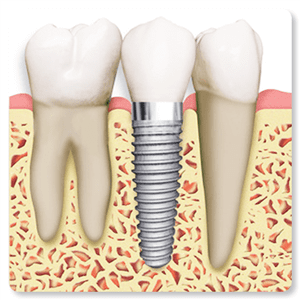Many patients often ask the question: “Which is the best dental implant system?”.
At the moment over 600 dental implant companies exist around the world. Some of them are the so-called “premium” ones that have been around since the inception of implants, but most of them are in the “value” or “discount” categories. Many dental implants are unique in design, and some are copycats of others.
So which dental implant system should one choose when we want to replace lost teeth with implant crowns, bridges, or dentures? Your dentist is the person qualified to make that choice for you based on anatomical and patient-related reasons. However, many dentists might offer cheaper or “more affordable” dental implants by using the ones belonging to the “value” or “discount” categories. Is that safe?
The facts are clear, although there are many gray areas on this subject:
- All of the dental implants sold in regulated markets have achieved some minimum standards of approval from regional and national Food & Drug Agencies. However, having a license does not mean that there is enough clinical evidence of success in humans.
- A recent systematic Cochrane review of all the published evidence, concluded that many dental implant systems available in the market today do not have any long-term human clinical data to support their use. The authors concluded that for the dental implant systems with available evidence, based on Randomized Clinical Trials, there was no evidence showing that any particular type of dental implant had superior long-term success.
So does that mean that all dental implant systems and companies sell similar products? The answer is definitely “no”. One aspect that is rarely discussed is the fact that, although the actual dental implants may last for many decades, or even for life, the supported crowns, bridges or dentures will need maintenance and/or replacement after some years of service. The problem that may arise at that point is that a number of implant companies shut down or are merged with others, and do not produce components anymore. This may lead to the future inability to service your implants or replace the prostheses on top of them.
We are now seeing patients having such issues with an increased frequency, as dental implants have been around for a long time. The subject of various dental implant systems choice and consequences is one of the favorite lecture subjects of Dr Lambis Petridis when he speaks in different meetings and venues. Dr Petridis’ long-term clinical experience with various dental implant systems and academic background, allow him to be an expert on this difficult issue of choosing and maintaining dental implants. If you have questions regarding which dental implants to use to replace your lost teeth, please make an appointment for a consultation today.











